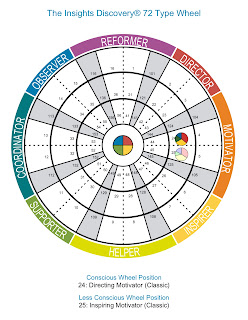Impure motive: "LinkedIn CEO says no one has time for Google+"
Gosh, does LinkedIn's CEO really not think people would question his motives in claiming that no one has time to add Google+ to their social network use? Does he really imagine that the triumvirate of Twitter, Facebook and - unsurprisingly - LinkedIn can't be toppled? Does he not remember Visicalc supplanted by Lotus 1-2-3? Or the way in which 1-2-3 and WordPerfect were blasted into oblivion by Excel and Word? Or the death of MySpace? Isn't it just a bit obvious that LinkedIn is threatened by Google+?
Anecdotally, I'm seeing a few of the people I follow on Twitter declaring that they are abandoning Facebook for Google+; and I overhead a couple of excited conversations by people who noticed that they could create a Google+ "circle" with just one member, giving them the equivalent of a Twitter Direct Message.
It's entirely possible that Google+ will supplant some of the more currently established networks, and I don't think LinkedIn is entirely safe, either.
The "network effect" can spin in reverse and once people start to leave, the trickle can become a flood as MySpace found.
What might give people pause is not so much the time they spend on other networks, but concerns over Google+ privacy. Google has got itself into some hot water on that issue and its playful logo and reputation for cool working environments aren't enough to kill the concerns that are gently brewing. Mostly it seems that members of the public don't yet care; but Google+ is not fit for business use where product plans and financials need to be transmitted and, as Microsoft confirmed, the rest of the world's data is not safe from the prying eyes of the US Patriot Act.
Expect Google+ to do well; but not in all environments. Millions will continue to use Facebook and Twitter - and LinkedIn, not only out of inertia but because they fulfill a felt-need role. Millions will invest in Google+, and not just the early adopters currently exploring its capabilities. But expect a need for niche tools that cater to privacy concerns and focus on business markets, not consumers.
Get more like this
Anecdotally, I'm seeing a few of the people I follow on Twitter declaring that they are abandoning Facebook for Google+; and I overhead a couple of excited conversations by people who noticed that they could create a Google+ "circle" with just one member, giving them the equivalent of a Twitter Direct Message.
It's entirely possible that Google+ will supplant some of the more currently established networks, and I don't think LinkedIn is entirely safe, either.
The "network effect" can spin in reverse and once people start to leave, the trickle can become a flood as MySpace found.
What might give people pause is not so much the time they spend on other networks, but concerns over Google+ privacy. Google has got itself into some hot water on that issue and its playful logo and reputation for cool working environments aren't enough to kill the concerns that are gently brewing. Mostly it seems that members of the public don't yet care; but Google+ is not fit for business use where product plans and financials need to be transmitted and, as Microsoft confirmed, the rest of the world's data is not safe from the prying eyes of the US Patriot Act.
Expect Google+ to do well; but not in all environments. Millions will continue to use Facebook and Twitter - and LinkedIn, not only out of inertia but because they fulfill a felt-need role. Millions will invest in Google+, and not just the early adopters currently exploring its capabilities. But expect a need for niche tools that cater to privacy concerns and focus on business markets, not consumers.
Get more like this



Comments